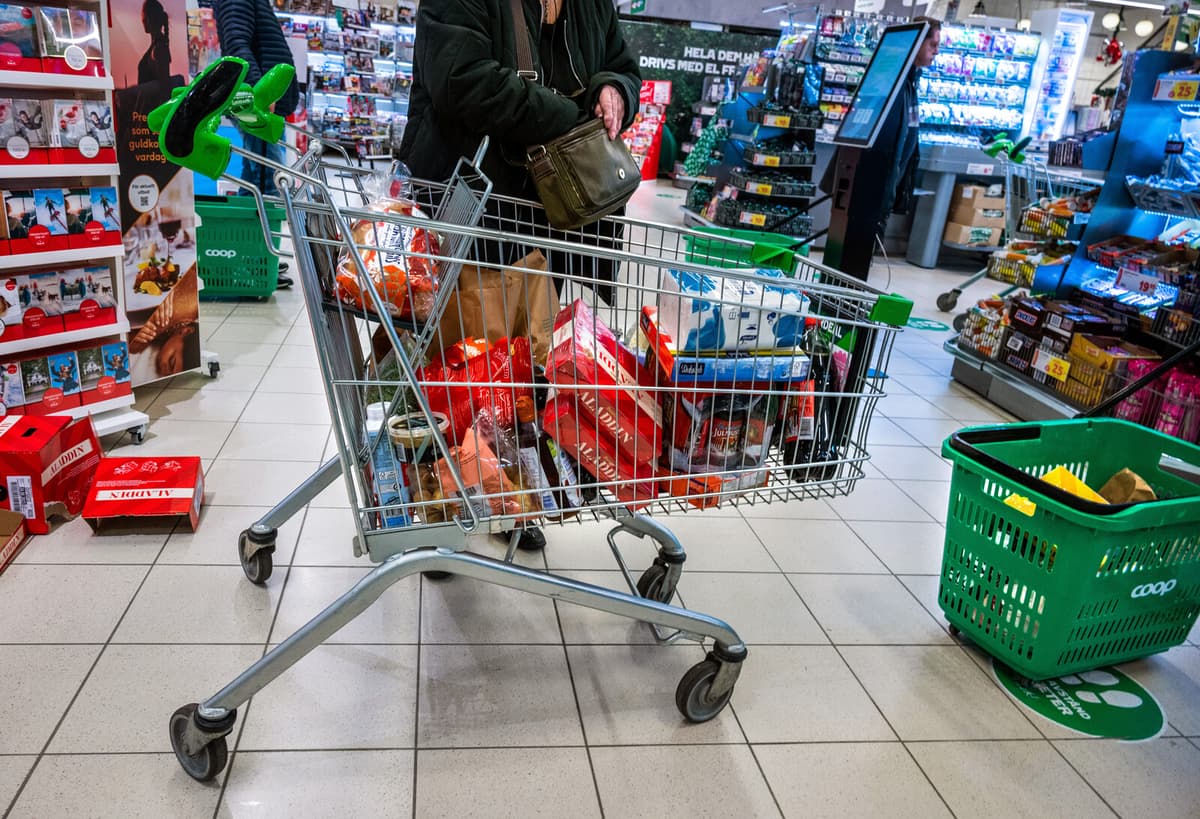A new low-price store in a location can have a significant effect on a household's economy, shows Matpriskollen's report. If a family with children only shops at the low-price store, the costs can decrease by up to 22,000 kronor per year.
But even if the household does not change stores, households save money because there is a low-price store in the area. Then, other stores also lower their prices. The savings for a household become an average of 7,000 kronor – just through increased competition in the area.
When customers get more opportunities to choose from, that's when stores are really forced to review their pricing, says Ulf Mazur, CEO of Matpriskollen.
You don't even need to start shopping in that store to get it better. The report shows that the price will still drop in the other stores.
Advertisement
Presses prices
Mazur calls this a "double effect". If low-price stores establish themselves in the area, the consumer gets both a cheaper alternative, at the same time as prices are pressed in other stores.
According to a report from the Competition Authority, 102 of Sweden's 290 municipalities lacked low-price stores in 2022 – which corresponds to every third municipality. The Competition Authority has found that local competition has been limited by the municipalities' planning work, which slows down the possibility of new grocery stores establishing themselves. This has also been pointed out by other actors and at the political level.
The low-price chain Lidl has 208 stores around the country today. The chain wants to open 7 to 10 stores per year. But it's going slowly, according to Niclas Kjellman, sales and property director at Lidl.
The absolute biggest challenge we have now is how municipalities interpret the planning and building law and that many say no to just food trade. Plus that the processing times are very long if we want to change an existing plan.
Advertisement
The low-price chain Willys wants to open ten new stores per year for five years, but also meets resistance. "There are several examples where we have tried to establish stores for 10-15 years without succeeding, and sometimes without understanding why", says establishment manager Heinz Möller in a comment.
Wants to see change
Lidl wants to see a change in the planning and building law, so that it is not possible to exclude new establishments. The government has previously given the National Housing Board an assignment to facilitate the establishment of new food stores. It will be presented in the spring.
We also want to remove the competition clauses that today make it possible for a grocery player to prevent other players from opening in a certain area, says Kjellman.
According to Finance Minister Elisabeth Svantesson (The Moderate Party), the government is doing what it can to increase competition.
"But the municipalities, regardless of color, must also do their part to allow more low-price chains to establish themselves. Competition and choice are an important factor in being able to press prices", says Svantesson in a written comment to TT.
Hanna Rasmusson/TT
Facts: How prices are affected
TT
Matpriskollen has looked at price differences when one or more low-price stores are within five kilometers of a hypermarket. The price gap between the hypermarket and the low-price store decreases the more low-price stores there are.
Where there is only one low-price store, the hypermarket has 5.3 percent higher prices. If there are four or five low-price stores in the area, the difference is around 3-4 percent.
Matpriskollen has also compared the price level for the most common everyday goods in 30 stores in 20 smaller locations, where half lack a low-price store. In the locations that lack a low-price store, prices are on average 14.7 percent above the low-price level. If the situation is the opposite, the difference is just under 10 percent.
There are also differences if you compare the local stores' prices to the national chain average. In the locations that lack a low-price store, the local store prices are 2.9 percent higher than the chains' average, compared to 0.8 percent in locations where low-price exists.
Source: Matpriskollen
Low-price chains are classified as Willys, Lidl, and Coop X:tra.
When it comes to hypermarkets, Ica Maxi was chosen as a comparison point. The price average for low-price has been retrieved from Willys, which has uniform prices throughout the country.
A family with children is considered to consist of two adults and two children, where the household on average spends 12,546 kronor per month on food and groceries, when purchasing from a nationally represented low-price chain.
At the local level, the price level for 123 items was compared in 30 stores in 20 locations with between 1,000 and 25,000 inhabitants.
Source: Matpriskollen






